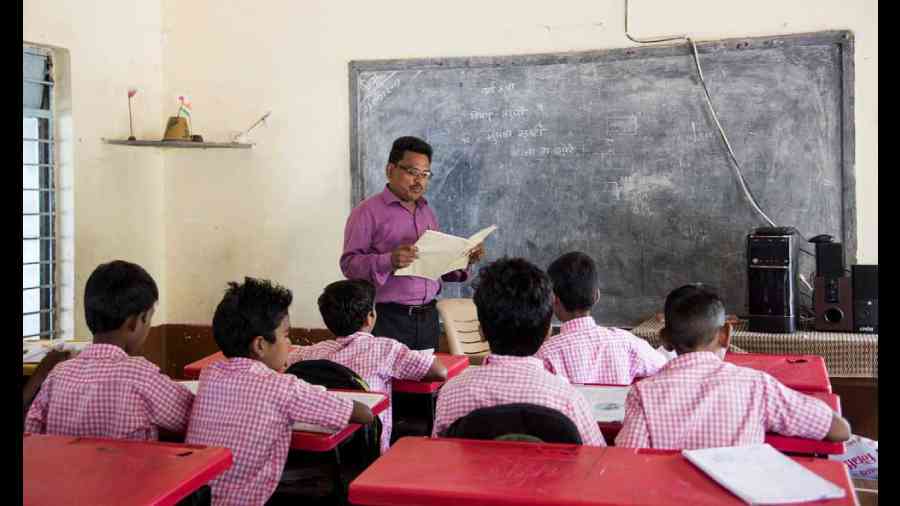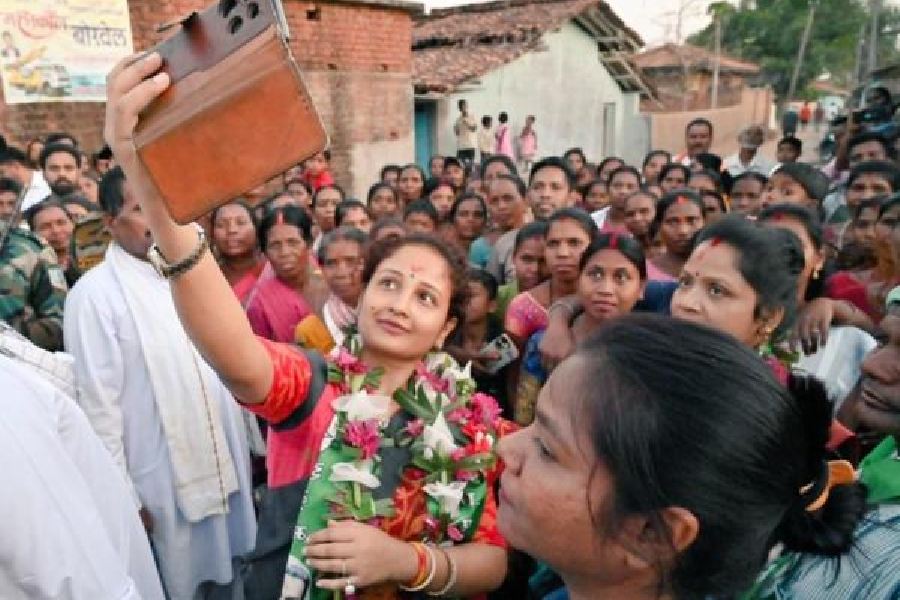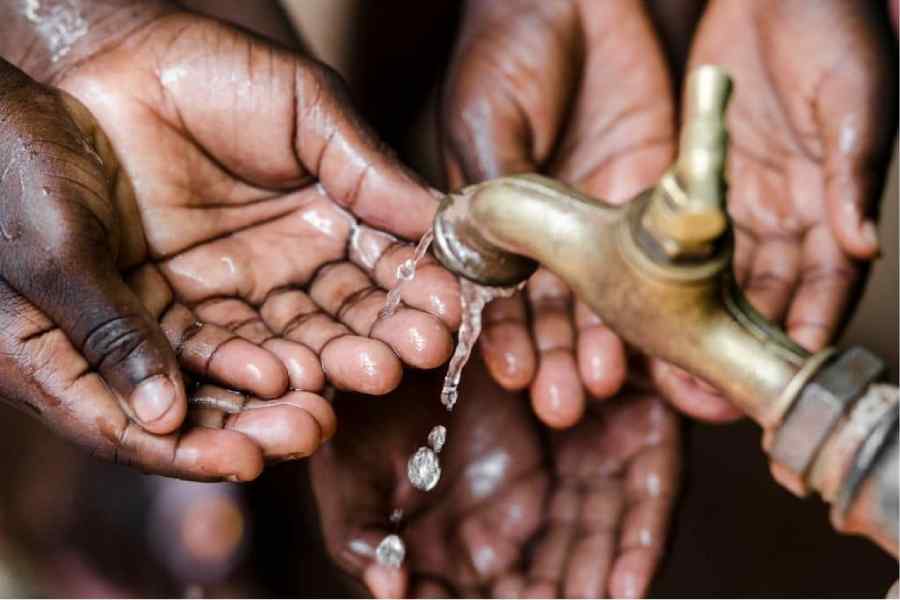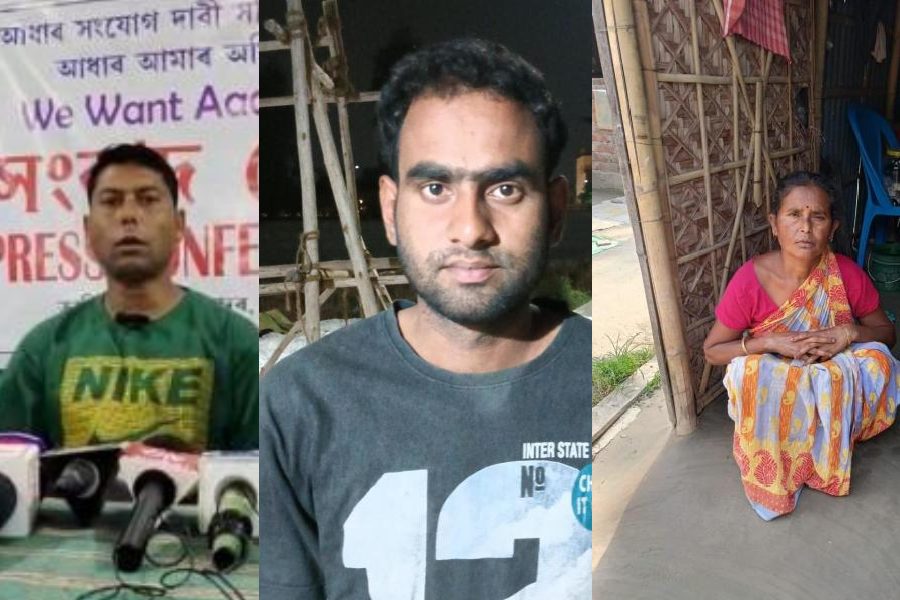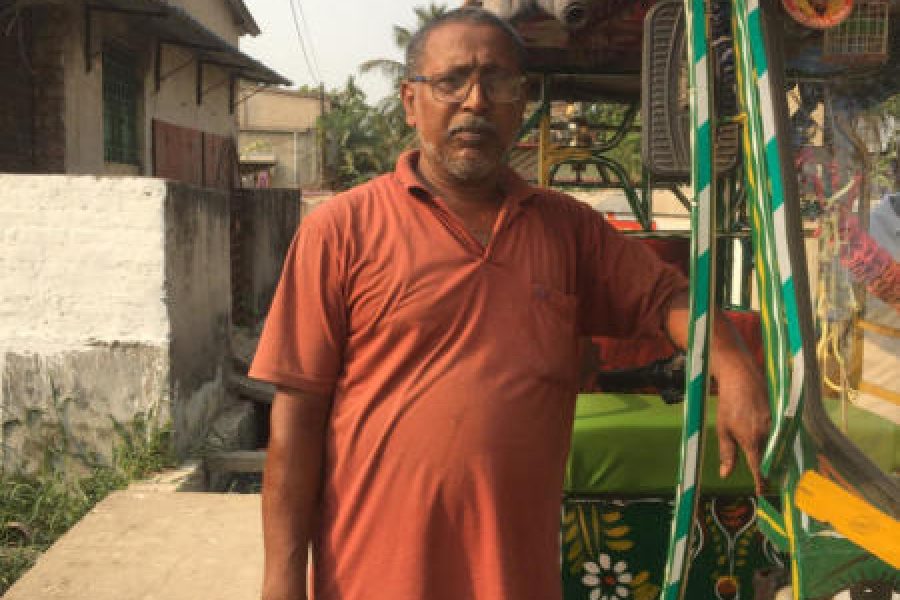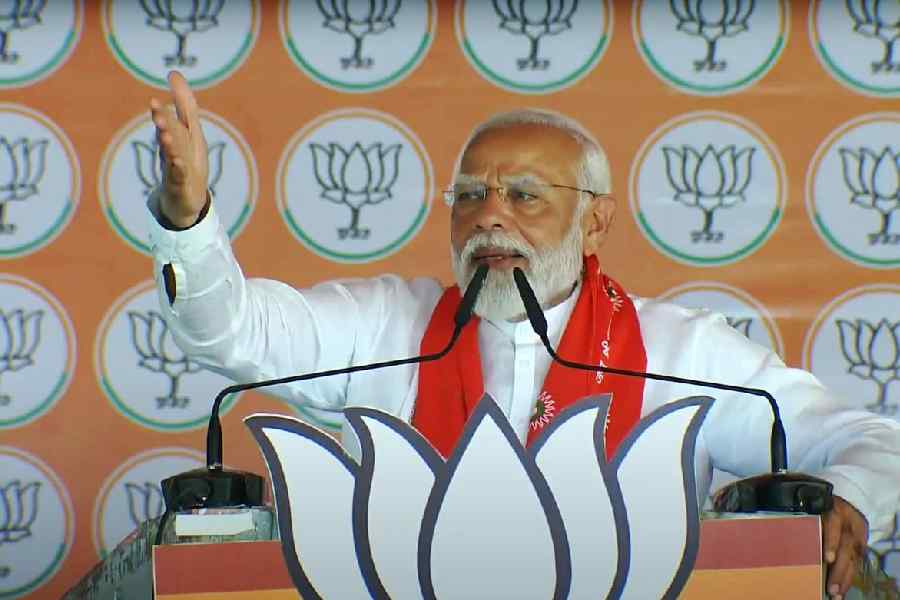The head teacher at a rural school in Odisha sums up his work profile as that of a “data entry operator”.
He is just one of lakhs of schoolteachers across the country who are forced to do a range of data collection and entry operations — working as “clerks”, a veteran educationist said — at the cost of teaching.
All this to meet the central and state governments’ insatiable appetite for a variety of information, ranging fromthe students’ Aadhaar numbers to the addresses of their parents.
■ The head teacher, from a school in Brahmagiri block of Puri district, said he began his day’s work by counting the number of students coming to the school at 10am.
He would count them again at 1.30pm when they had their free midday meal, provided under the Prime Minister Poshan scheme. He would send the data immediately to the state government through an official messaging system, via his mobile, giving the numbers of meals cooked and children served.
■ If the state government seeks daily data, the Centre seeks it every month.
At the end of each month, the head teacher uploads a detailed statement on the PM Poshan portal about the Aadhaar number of eachstudent, the amount of food grain used for the midday meals that month, the volume of government funds the school spent that month, and the money still left with the school.
This demand for monthly information — from government and aided schools — is new. It has triggered fears that the government wants to limit the Poshan funds to the number of students with Aadhaar registration.
■ Twice a year, during admissions and the final exams, the head teacher has to upload data on each student — Aadhaar number, parents’ names, and addresses — apart from information on the school infrastructure and the grants received and utilised, under the Unified District Information System for Education (U-DISE).
This mechanism has been in place, for government and private schools, for many years and helps monitor dropout rates and school infrastructure.
■ The head teacher has, under the central government’s Public Financial Management System (PFMS), to furnish details of the vendor from which he would like to buy material for school repairs and maintenance. Every school receives an annual grant for repairs and maintenance.
“Every teacher has been reduced to a data entry operator,” the head teacher, who did not want to be identified, said.
“Some of the websites, like that of the PFMS, are too complicated to understand. I have not given details about the vendor because I don’t know how to furnish the details,” he added.
“If I can’t figure out how to do it by March, my school will not receive the repair grants for the coming year.”
Academics and public policy experts said the government’s increasing demands for all kinds of information, and its policy of engaging teachers in the collection and entry of data, would hurt the quality of education at both government and private schools.
Public policy expert Jean Dreze said the policy amounted to an unnecessary surveillance of the school system, and wasted the teachers’ time.
“Teachers are being assigned excessive non-teaching duties. There should not be any compromise on maintaining the classroom hours for teaching,” Dreze said.
He said the Right to Education Act prescribed a minimum 45 hours of work a week for teachers at primary and upper primary schools. It also contains an implicit norm of at least four hours of classroom teaching per day at primary schools, amounting to a minimum of 800 hours over 200 school days a year.
Anita Rampal, former dean of faculty (education), Delhi University, accepted that teachers have to be engaged in certain kinds of constitutional work like election and census duty, but said data entry operations should not be imposed on them.
“The more you try to control and micromanage students — for instance, by recording the ID card for the child’s midday meal — the more the teachers are compelled to act as mechanical clerks, and are burdened more,” she said.
“These (benefits like the midday meal) are children’s entitlements, not a bureaucratic burden.”
She added: “Importantly, the children’s Aadhaar details should not be asked for this purpose, and also on grounds of the children’s privacy. The sanctity of teaching has to be honoured. Monitoring at a minute level is certainly not desirable or necessary.”
Rampal said that teachers should be encouraged to tend to the children during all kinds of activities, including eating with them and getting them together at lunchtime, which doesn’t always happen.
“It’s not the role of education or the educators to treat a child as a body of data to be entered. The teachers need, instead, to be encouraged to treat them with personal and humane concern and care,” she said.
Online data entry operations had increased during the pandemic, when allowances for the midday meal and uniforms were transferred to the parents’ accounts since the schools were closed. The schools were asked to furnish details of the students and parents online, including the parents’ bank account numbers.
The practice has continued even after Covid, said Shasank Pandey, joint secretary of the Rashtriya Sikshak Mahasangh, a primary teacher’s body in Utter Pradesh.
Pandey said the Uttar Pradesh government wanted school data – such as the money given to the students to buy uniforms --- to be furnished via certain mobile phone apps such as DBT (Direct Benefit Transfer) Prerana.
“In our state, every teacher spends at least one hour on his mobile phone every day sending data to the government,” he said.
“The government should hire separate staff and set up an infrastructure for data entry.”
An email sent to Union school education secretary Sanjay Kumar seeking the reasons for the increase in teachers’ non-teaching workload awaits a response.

